
DISMAN, M. / KONOPÁSEK, Z. (1999): Úvod k biografickým úryvkům SAMISEBE. In: Z. Konopásek, ed.: Otevřená minulost: autobiografická sociologie státního socialismu. Praha: Karolinum. Str. 255-257
::::
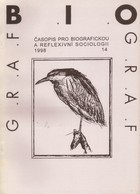
KONOPÁSEK, Z. (1998): Staré ortodoxie, nové ortodoxie: kvalitativní výzkum na prahu příštího století (review). Biograf , (14): 63-75
, (14): 63-75
::::Recenze knihy: DENZIN, N.K. (1997): Interpretive ethnography: Ethnographic practices for the 21st century. Thousand Oaks: Sage. 325 s. ISBN 0-8039-7299-7
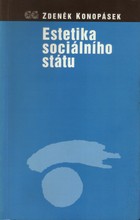
KONOPÁSEK, Z. (1998): Estetika sociálního státu: O krizi reprezentace (nejen) v sociálním zabezpečení. Praha: G plus G. 341 s.
::::The book challenges the usual views of the welfare state which seek to explain its current difficulties in terms of economics, politics or ethics. Instead, it prefers the perspective which I call "welfare state aesthetics". By this term I mean a study of welfare institutions as a kinds of texts representing social phenomena that are to be coped with. These texts should be studied relatively independently of their authors' convictions or wishes as well as of social scientists' objective knowledge of the phenomena. The title term "aesthetics" indicates that it is presumed that realism of these institutional texts is based on artful illusion-making and on processes of translation from one text to another rather than on the mimetic mirroring of "real life". In the book, I use such a perspective for an analysis of social security benefit schemes. Benefit formula are seen and analyzed as texts that representing, in some way, the reality of "income insufficiency". It is argued that in the postmodern era, the universalism of these texts increasingly undermines their realism and vice versa. The tension between universalism and realism is at the core of what I mean by the term crisis of representation in social security. The representation crisis, of course, affects a wide range of social texts ranging from biographical constructions of identity to scientific constructions of truth. Thus, some aspects of the welfare state crisis may be understood against precisely this wider context.
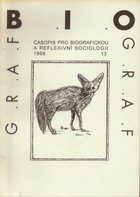
ATKINSON, P. / SILVERMAN, D. (1998): Kunderova Nesmrtelnost: Interview society a vynalézání Já. Biograf , (13): 1-25 - přeložili Lukáš Gjurič a Zdeněk Konopásek
, (13): 1-25 - přeložili Lukáš Gjurič a Zdeněk Konopásek
::::Milan Kundera[a]s novel Immortality bears a dose relation to con temporary social science debates about the production of the self. Commentators like Kleinman and Mishler seem to have introduced a new version of authenticity based on a reinvention of the Romantic subject with the interview (as the medium) and the narrative (as the content) portrayed as the means for constructing and sharing biographical experience. Unlike such contemporary Romantics, Kundera examines how the subject is constructed in literary biography and mass media "imagology". The authors show how Kundera[a]s work leads in two possible directions: an analysis of the interview society and a concern with strategies for the invention of the self. By locating styles of the self, the authors reveal lively and skillful biographical work, overlooked by cultural critique and not reducible to any structural determinism.
ATKINSON, P. / SILVERMAN, D. (1997): Kundera's Immortality: The interview society and the invention of the self, Qualitative Inquiry, 3 (3): 304-325
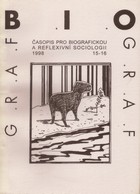
MOSER, I. / LAW, J. (1998): Přechody snadné, přechody nesnadné: o heterogenní ekonomii subjektivity. Biograf , (15-16): 5-28 - přeložil Zdeněk Konopásek
, (15-16): 5-28 - přeložil Zdeněk Konopásek
::::This text explores the relation between subjectivities, materialities (including technological arrangements) and bodily competencies. Starting from the assumption that all material and bodily arrangements are specific, it considers some of those specifities, and the "passages" through which these specific arrangements are fitted together for a particular person, Liv, who is physically disabled. It explores the character of some Liv[a]s "passages" - some are "good", some "bad", some public, and some discrediting - and the ways in which they are shaped to produce personal and biographical continuity and relative autonomy for her - an autonomy and capacity discretionary decision making which she highly values. The paper thus uses some of the tools developed in the actor-network approach, but also in feminism, to interpret the material and corporeal relations involved in the formation of contemporary subjectivities.
MOSER, I. / LAW, J. (1999): Good passages, bad passages. In: J. Law, J. Hassard, editors: Actor network theory and after. Oxford: Blackwell & Sociological Review. Str. 196-219
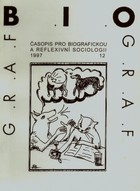
FISCHER-ROSENTHAL, W. (1997): Problémy s identitou: biografie jako řešení některých (post)moderních dilemat. Biograf , (12): 1-18 - přeložil Zdeněk Konopásek
, (12): 1-18 - přeložil Zdeněk Konopásek
::::Přeloženo z původního článku: FISCHER-ROSENTHAL, W. (1995): The problem with identity: Biography as solution to some (post)modernist dilemmas. Comenius, (15): 250-265
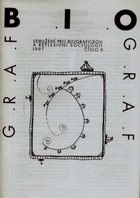
KONOPÁSEK, Z. (1997): Text a textualita v sociálních vědách: Třetí část - reflexivní impuls. Biograf , (9): 7-15
, (9): 7-15
::::

KONOPÁSEK, Z. (1997): Co si počít s počítačem v kvalitativním výzkumu: program ATLAS/ti v akci. Biograf (12): 71-110
(12): 71-110
::::
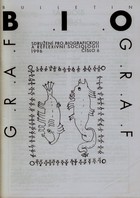
ANDRLE, V. (1996): Muži na svém místě: legitimizační témata v autobiografickém vyprávění elitních podnikatelů s minulostí "starých struktur". Biograf Bulletin, (6): 17-27 - přeložil Zdeněk Konopásek
::::Based on a business élite subsample of biographical interviews, the article explores the ways in which respondents who had had high executive positions in the communist state sought to imbue that fact as well as their post-revolutionary wealth acquisition with a sense of post-revolutionary legitimacy. a) They dissociated themselves from the communist regime by claiming that oppressive power was located in other offices than the ones they occupied; b) they presented their careers as ones which enabled them to accumulate expertise relevant to doing well in the market economy; c) they presented themselves as ancestrally linked to the first-republic bourgoisie and personally connected with the current (supposedly liberal-democratic) government; d) they drew on the collective memory of previous revolutions to dismiss their militant critics.
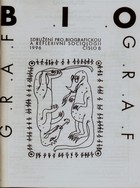
KONOPÁSEK, Z. (1996): Text a textualita v sociálních vědách: Druhá část - metodologické motivace. Biograf , (8): 9-23
, (8): 9-23
::::
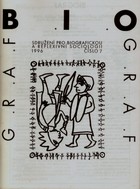
KONOPÁSEK, Z. (1996): Text a textualita v sociálních vědách: První část - teoretické motivace. Biograf , (7): 33-45
, (7): 33-45
::::
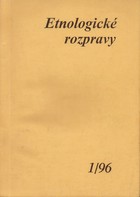
KONOPÁSEK, Z. (1996): Radikální reflexivita a biografický přístup. Etnologické rozpravy, 3 (1): 49-62
::::
KONOPÁSEK, Z. (1996): Sociologie jako power play. Sociológia, 28 (2): 99-125
::::The presented essay has been inspired by numerous writers who have one thing in common: they distrust of conceptual dualisms and incommen-surabilities that lie behind the modern social science thinking. That is why the dividing lines between knowledge and power, sociology and society, methods and ethnomethods, or truth and falsity are not approached here as part of the solution (as a resource of explanations) but as part of the problem (as things to be explained). It is argued that sociologists construct the authoritativeness of their knowledge in such a way that they arrange a power play, a plain superiority in numbers. They do so deftly and unnoticeably, yet unwittingly, under the guise of ascetic recluses distanced far away from ordinary life. The argument is illustrated by the case of "objective hermeneutic", a qualitative research strategy of German origin, used typically within so called biographical research. I claim that the case of objective hermeneutic (and the case of qualitative methodologies in general) is only particularly obvious and vivid demon-stration of what is much less obvious and visible elsewhere, throughout the field of social science.
KONOPÁSEK, Z. (1996): Rodinná politika (Slovníkové heslo). In: Velký sociologický slovník. Praha: Karolinum
::::
KONOPÁSEK, Z. (1996): Biografická sociologie (slovníkové heslo). In: Velký sociologický slovník. Praha: Karolinum
:::: 
 ? - recenze vyjde v časopise Biograf
? - recenze vyjde v časopise Biograf
 se objevily informace o tom, co lze snad prý během března čekat v nové, sedmé verzi mého oblíbeného analytického programu
se objevily informace o tom, co lze snad prý během března čekat v nové, sedmé verzi mého oblíbeného analytického programu










